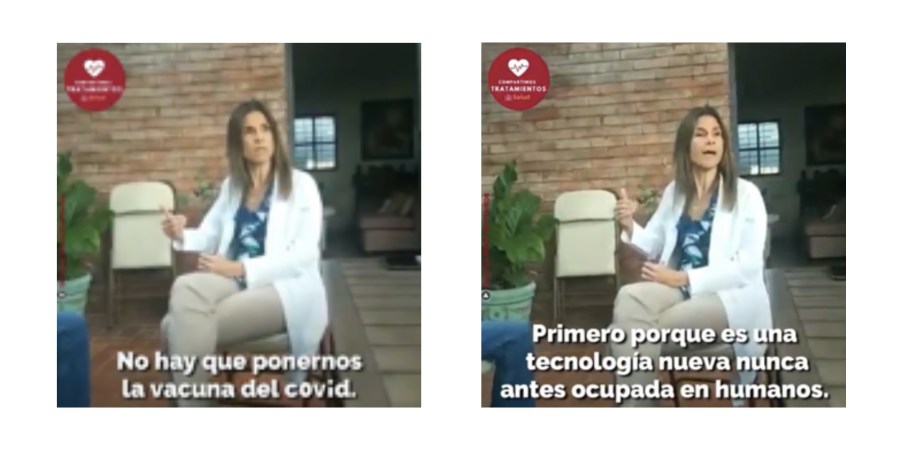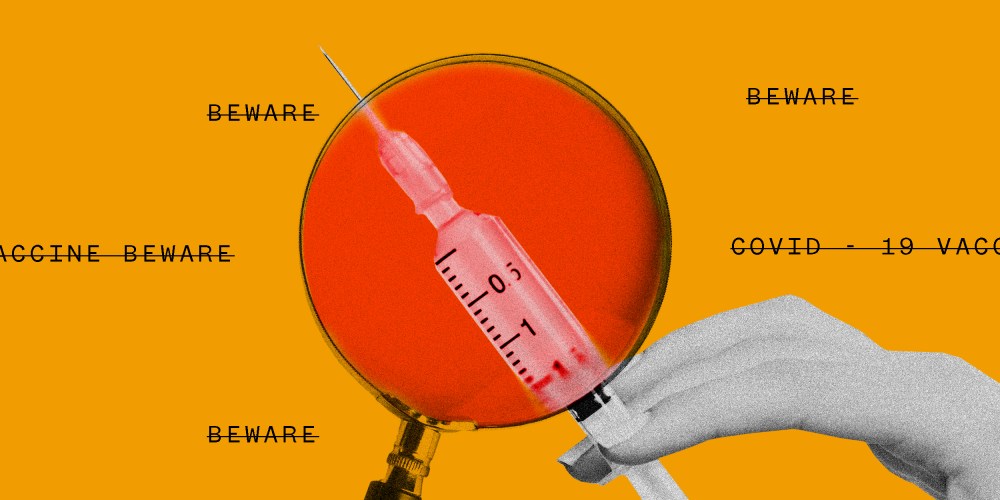Around the world, disinformation is stoking coups and shielding corruption. Highly engineered lies seed a distrust in government and institutions; their power is seen in staged images from Pyongyang, in smoke-filled Moscow streets and at the U.S. Capitol on Jan. 6. I’m now seeing them in the most dangerous place of all: my mother’s inbox.
Once the vaccine race started, the emails started.
Mom doesn’t seem like a typical target. She is an active, 70-year-old immigrant who runs an elder care facility in California, where she brought my family from Colombia when I was 4 years old. My mother loves her work, the people she works with and the community they care for, and will do everything under her control to protect them.

My mother’s facility followed the strictest of protocols in the pandemic, and luckily, not a single elderly resident became infected with Covid-19. But there were still two things out of her control: the virus itself, and the cloud of infected information surrounding it.
Once the vaccine race started, the emails started. They first came from my mom’s friend from her gym who forwarded a message from friends of friends back in Cartagena, I was told. The email originated in El Salvador. All the emails had a common theme: Don’t trust the vaccine.

In one message, a video of an El Salvadorean woman wears a lab coat and exhorts viewers to not get vaccinated. “We don’t have to give the vaccine,” the woman says in Spanish. “It’s a technology that is new and has never been used on humans.”
These videos rely on the knowledge that propels most conspiracy theories: that people like to think that we alone have access to unique knowledge and information. Disinformation like this also relies on recipients keeping it to themselves or sharing it only within a closed group of trusted people. Stalin understood this and used it against his enemies and his own people. Richard Nixon adopted it, Matt Drudge digitized it, and the autism anti-vaccine movement pointed the weapon at its own target: desperate parents.
“I’m not so sure about this,” my mother told me over the phone. “I’ve heard this might be bad for me.”
I only learned of my mother’s circumstances when the health care provider for her facility arrived to start administering Covid-19 vaccines. “I’m not so sure about this,” my mother told me over the phone. “I’ve heard this might be bad for me.” And it wasn’t just my mother’s feeling; as the health care provider discussed the vaccine protocol with her staff — all whom are immigrants of Latin American and African origins — the eyebrows went up and the sleeves rolled down. Few of them wanted to get it.

They’re not alone.
My organization Voto Latino recently surveyed Latino populations in the U.S. on how the pandemic has disrupted their lives. Respondents told us that 2 in 5 of them have lost wages; 2 in 5 have lost some or all of their savings; 7 in 10 have had a friend, loved one, or family member contract Covid-19; and 3 in 10 of those people who contracted the virus have died.
But of the Latinos we surveyed, 24 percent said they will not get vaccinated and 23 percent are unsure. That’s nearly half, and all because of disinformation specifically targeting their communities.
So, who’s behind it? For answers, I looked to Russia — and social media.
Of the Latinos we surveyed, 24 percent said they will not get vaccinated and 23 percent are unsure.
Since last summer, Russia has used government Twitter accounts and its own propaganda platforms from the Middle East to Latin and South America to sow distrust of Western vaccine makers while praising the domestic effort. Then, much as right-wing operators used British tabloids and the Drudge Report to launder conspiracy theories against Bill and Hillary Clinton in the 1990s, Russia’s disinformation corps floods anti-vaccine Facebook groups and closed WhatsApp chats with these stories, other lethal lies and millions of dollars in advertising revenue — much of it accruing to Facebook itself.













